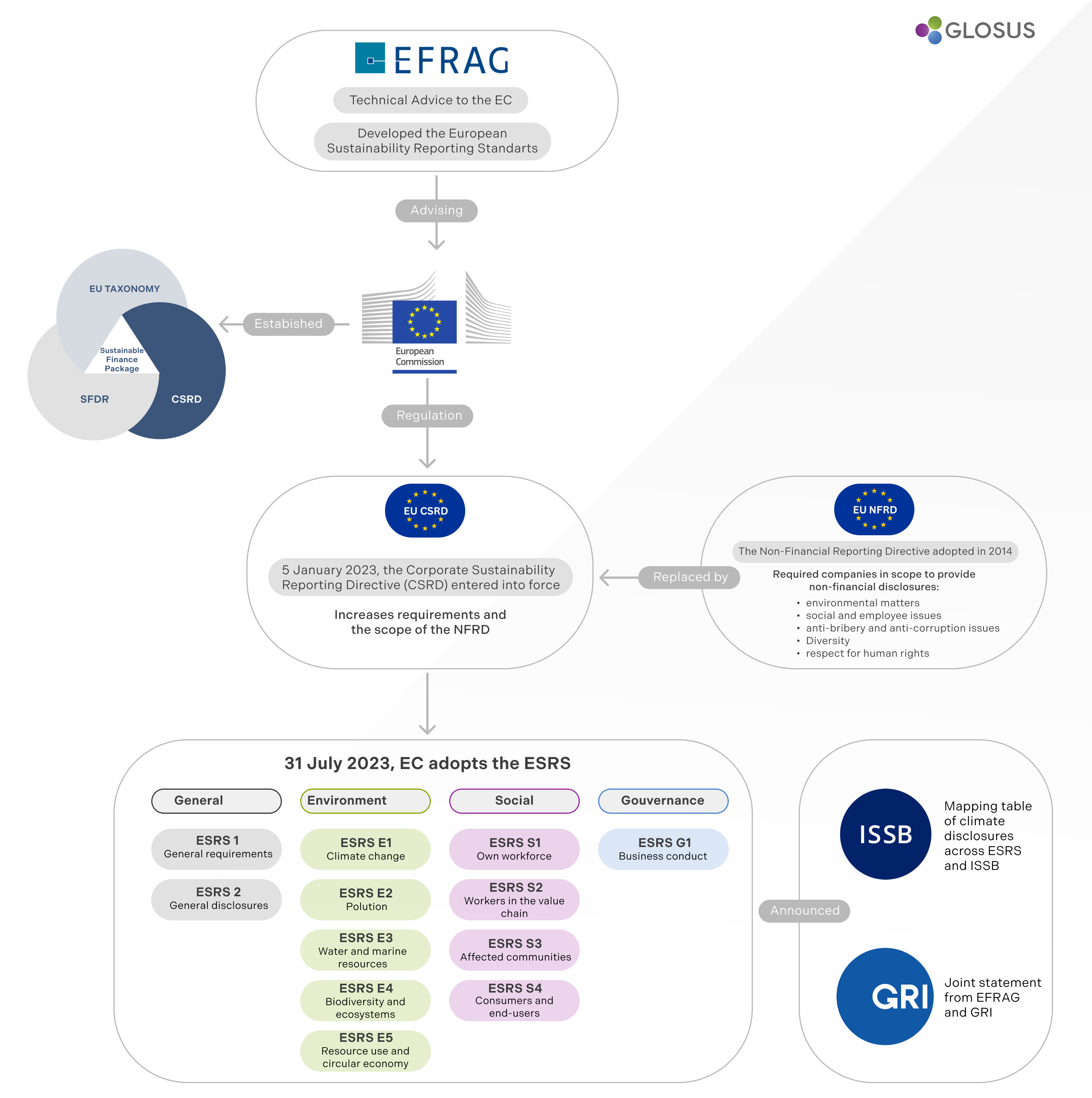PLATFORM

PLATFORM SERVICES
APPS
BUILT FOR SCALE

The CSRD (Corporate Sustainability Reporting Directive) is an EU directive that standardizes the sustainability reporting of companies within the European Union. It was adopted by the European Parliament on November 10, 2022, and must be transposed into national law by January 1, 2024.
We explain in this article what this means for companies and whether your company needs to be CSRD-compliant or not.
The following infographic illustrates the relationships between the sustainability reporting frameworks applicable in the EU:

GLOSUS offers the easy to use software for corporate sustainability information management. Our modular subscribable cloud solution enables companies manage their ESG data aggregation for holistic steering, compliant sustainability reporting and positioning as leader in sustainability.
With GLOSUS you take the step into a sustainable and efficient future. Book a non-binding and free appointment with our GLOSUS expert team to analyze together the potentials for your company!
The enterprise GLOSUS is granted by the German Federal Ministry for Economic Affairs and Energy and the European Social Fund as part of the EXIST program - University-based business Start-Ups.